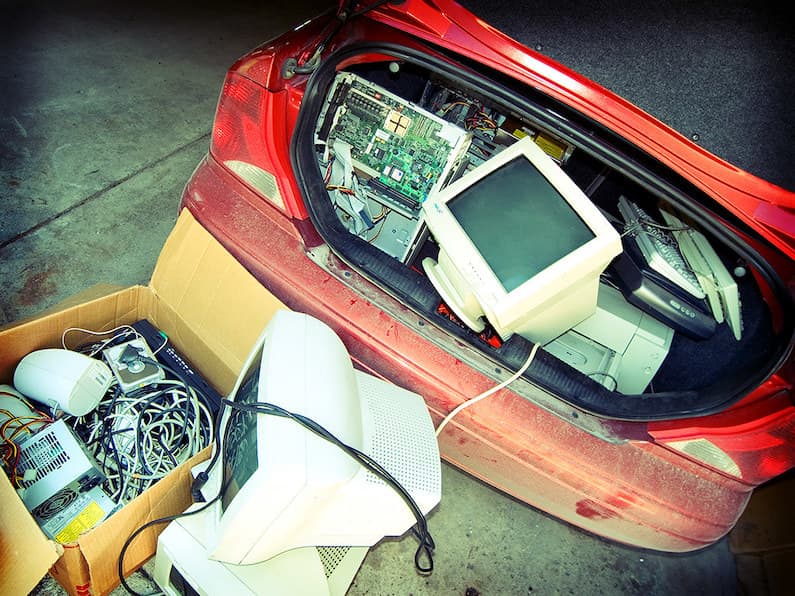E-waste in the Modern World
All first world nations (and many of the others) are suffering from the accumulation of old and obsolete electronics. The increasing prevalence of “use and dispose of” gadgets has exacerbated the problem and, now that third world countries are no longer to eager to accept the ensuing electronic trash, the problem has to be dealt with where it occurs: at home.
Electrical and electronic devices are a fundamental part of modern-day living and working. As an example, the average UK household has more than forty pieces of electronic equipment, and while that improves efficiency and contributes to the quality of our lives it comes at a cost to people, the environment, and wildlife.
Manufacturers are designing their electronic products with built-in obsolescence, and making them difficult if not impossible to repair, thus forcing them to be abandoned in favor of the latest, more expensive, updated versions when they break down.
A 2019-2021 study in the United Kingdom by the House of Commons Environmental Committee found that the UK produces the second highest level of electronic waste in the world. And up to 40% of that waste is still being exported overseas where it is often dumped into landfills without proper treatment, causing lasting damage to public health and the environment.
The tragedy of all this is that the materials that are being wasted are often valuable and, in some cases, rare. The raw source for lithium, as an example, could be exhausted within two decades at the current and projected rates of usage.
Recommendations of the Committee
The House of Commons Committee made some major recommendations to improve the way that electronic waste is dealt with, including:
- Asking the British Government to set long-term targets for the collection, re-use, and recycling of e-waste to focus on reducing resource consumption; the environmental impact of the industry and on capturing and retaining value, including critical raw materials.
- Recommending that online retailers and marketplaces must have an obligation to collect electronic waste from customers—meaning that these major suppliers must arrange, and pay for, like-for-like electronic waste collection from a customer’s home on delivery of new electronics. They must also offer to collect any electronic waste defined as “small” at the same time.
- Proposing that the practice of intentionally shortening the lifespan of products through planned obsolescence be eliminated and requiring all producers to label their electrical and electronic products with each item’s expected lifetime. It is suggested that the label should also include a repairability score based on the product’s design, the availability and cost of spare parts, and access and ease of use of repair manuals.
- Manufacturers should ensure that their products are recyclable and suitable to be dismantled by waste treatment operators. They should also provide clear information to recyclers about the materials and quantities of those materials in their products.
These are only some of the key recommendations in the report and there will inevitably be some backlash from manufacturers, but the growing public awareness of the extent of the problem, and the costs faced by consumers through planned obsolescence, are creating an environment for change.
Although the Committee’s report was only considering the electronic waste generated in the United Kingdom, Europe, and the United States are facing the same challenges and would be wise to consider some of the same proposals. The days when it was thought acceptable to offload the problem onto countries with poor populations, willing to work in unsafe conditions, and without the protection of environmental laws, are coming to an end.
In today’s world, the business model for many technology companies relies on generating continuing demand for their products, usually through extensive advertising designed to create peer pressure for the latest, greatest gadgets. This practice, combined with the product being designed so that it is impossible to disassemble and repair, leads to the waste of rare resources as well as harming the environment. This damage is not a short-lived problem, we, our children, and our grandchildren will suffer from this for years to come. It is time to stop!
At Potomac eCycle, we work to industry best practices to ensure that we recover much material as possible from e-waste and that any residue is handled in an environmentally responsible manner. Ask us for more details.


Recent Comments